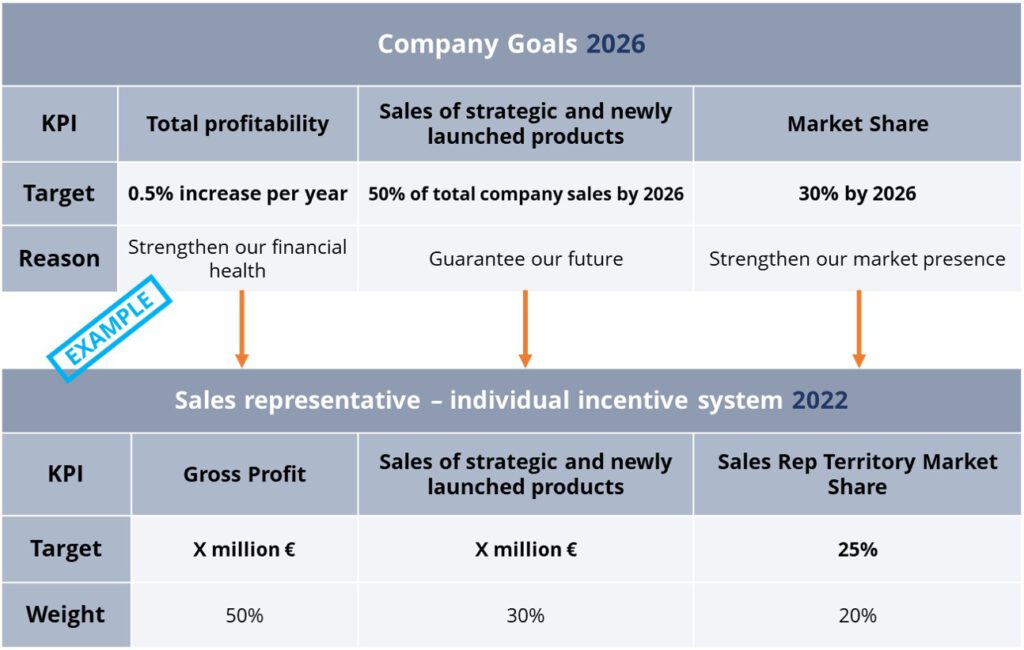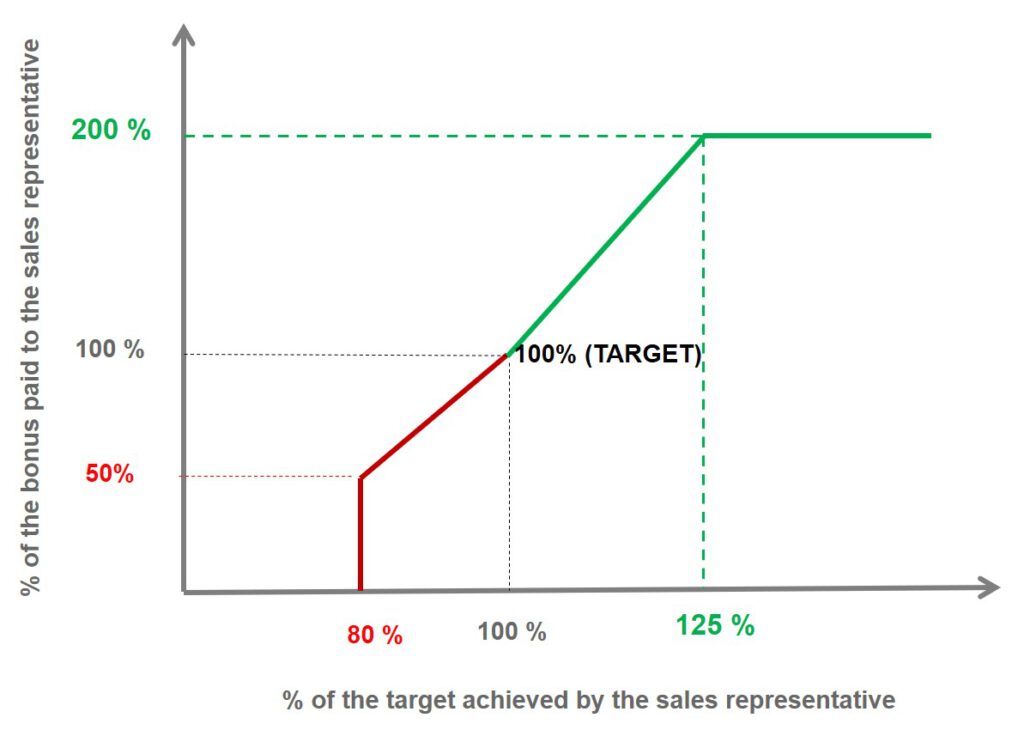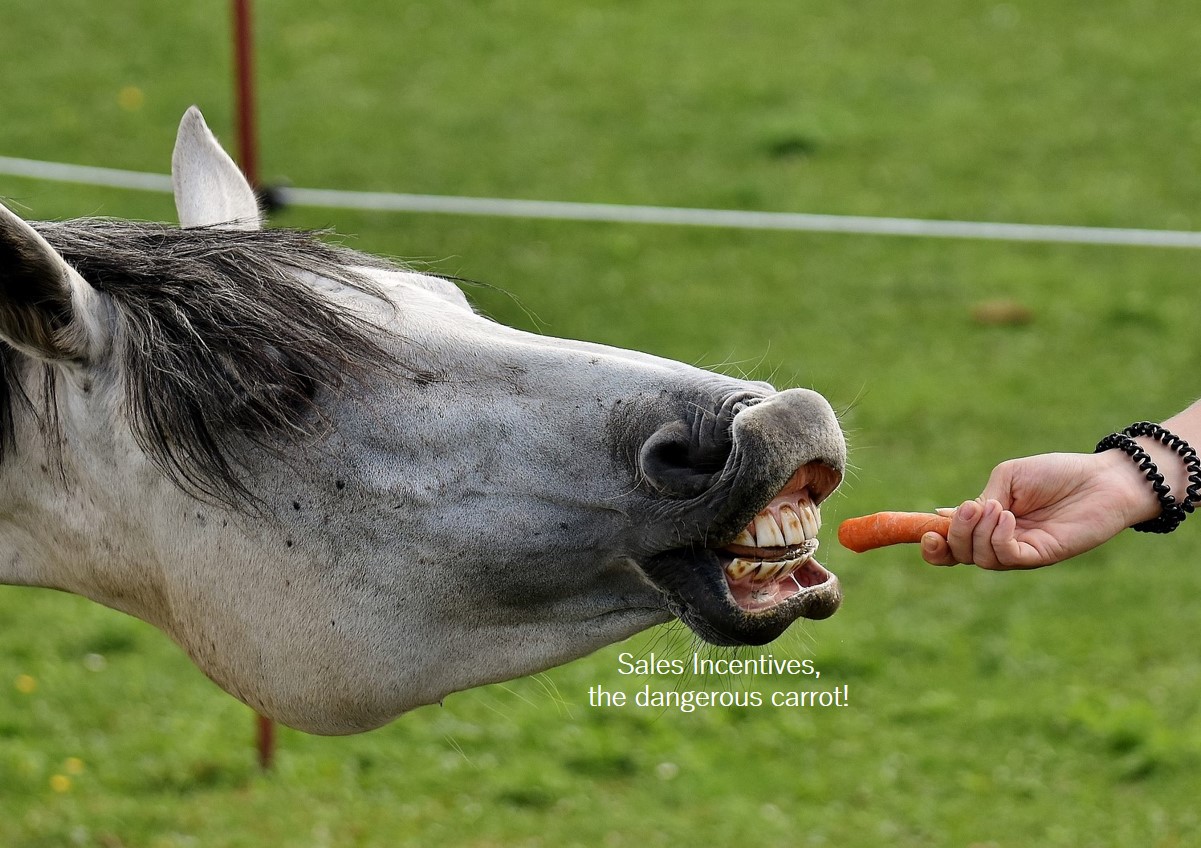The wrong carrot could be dangerous. Be extremely careful how and what you do to motivate your sales teams, because you could successfully drive them, but in the wrong direction. The cliché of horse and carrot is also completely misleading. Salespeople are like CEOs of their businesses and not irrational followers of your incentives strategies.
In this article, you will see how to apply Sales Incentives best practices, focusing on the alignment and motivation of your sales teams to support your CEO in achieving her targets.
By following these 3 tips, you will improve your capacity to align your sales teams with your strategy:
1. Make the sales teams aware of, and accountable for, discount levels
2. Increase sales teams’ commitment to selling the new generation of products
3. Reduce the performance variance of your sales force
1. Make the sales teams aware of, and accountable for, discount levels
Carefully examine whether what you are demanding from your sales teams is really what will make you successful. For example, there are companies across all industries and sizes whose primary motivation for their sales teams is to achieve a specific revenue target. When revenue is the most important Key Performance Indicator (KPI), sales teams tend to go for easier sales, which usually come from older generations of products, with lower profitability and less long-term strategic importance.
In this case, consider revising your incentive system’s targets so that the sales employees become partially accountable for and highly aware of the impact of their discounts on overall profitability.
In many cases where companies link sales team bonuses to company profitability, sales teams are much more cautious about giving discounts, and company profitability increase without decreasing sales. Therefore, a profitability indicator should be thoroughly considered in your sales compensation system. In fact, I strongly recommend making profit the main goal for salespeople.

2. Increase the sales teams’ commitment to selling the new generation of products
Do not underestimate how hard it is to sell new products. Customers are not used to them, often they are very satisfied with the old ones, and on top, they know that the new product will cost more. That is why sales teams tend to go for the older generation of products. Why wouldn’t they? It’s the path of least resistance. Unfortunately, the current products are usually less profitable and of less long-term strategic importance as there are more and more similar products on the market.
Remember, you are leaving a lot of money on the table and you are jeopardizing the future of your business, not to mention the significant loss of profitability if you take too long to reach peak sales of your newly launched products.
Therefore, it is critical that a relevant factor of the target system is focused on the newly launched products. This motivation will create the right awareness among the sales teams and drive them to ensure a better future for your company.

3. Reduce the performance variance of your sales force
In many companies, there are large differences in performance among sales employees. A good portion of this is certainly due to soft and team factors added in the sales incentive systems, such as collaboration with colleagues, inputting data into CRM, and shared team goals.
No successful sales professional likes to be evaluated based on opinions, biased judgments, or the results of others. Salespeople know that their success can be measured fairly and accurately, based on their results. Once you fail to provide them with few, fair, and objective sales KPIs, you demotivate top salespeople and increase performance variance throughout the sales team.
The graph above shows the payout curve for a sales incentives system. Notice in this example that an employee who achieves 125% of the target receives twice the bonus. On the other hand, if he achieves less than 80% of the target, he receives no bonus. It has a strong demotivating effect on salespeople when the calculation of goal achievement is not based on numerical and objective sales results. Salespeople know the risk and the rewards, so they manage their sales to maximize their bonus in good years and achieve at least above 80% in bad years.
This natural reaction of sales employees to a well-designed incentive system leads to a drop in performance variance within the sales team. This is because they know what they need to do to be successful, and they are not dependent on subjective judgment or other employees’ results to achieve their goals.
If you want to align your sales teams with your strategy, stop giving them carrots and instead make them aware of the huge impact they have on your company’s success and hold them accountable for it. A well-designed incentive system for sales is a proven way to make this dream a reality.

Caio Kraemer is a professional with more than 10 years of practical experience implementing and managing Sales Excellence projects in Germany and globally. His 25 years of experience extend to several industries, market structures, consumable and durable goods. The success of his projects is based on passion, pragmatism, know-how, perseverance and change management.



© KRAEMER Sales Excellence Consulting GmbH